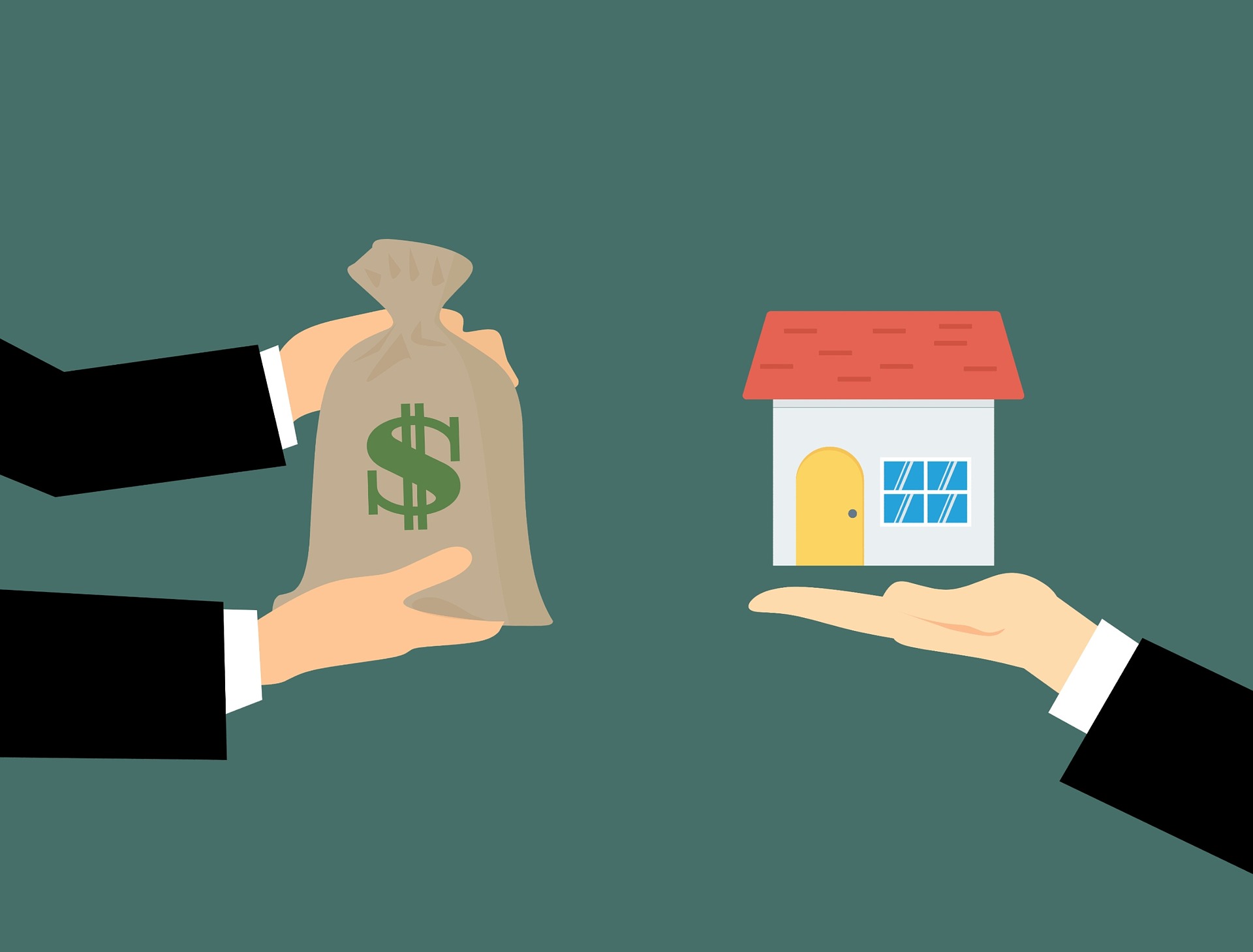Everyone would love to sell their home for cash, but the reality is, it’s much more difficult than you might expect. Despite the obstacles however, the Economist Outlook blog via the January 2017 REALTORS® Confidence Index Survey Report said that 23 percent of home sales were cash sales in January 2017. They also note that buyers of homes for investment purposes, distressed sales, second homes, and foreign clients are more likely to pay cash than first-time home buyers, who typically opt for a traditional mortgage loan. The majority of people who pay cash for homes are real estate investors, not usually regular day-to-day families looking for their first or second home. However, don’t let these statistics scare you off. The decrease in cash sales is actually a good thing for those looking to sell their home for cash because that cuts down on competition from other sellers and may reap you more benefits as cash buyers become more and more of a rarity. However, this also means it may be more difficult to find a buyer for your house.
There are also a few things to expect while selling your home for cash, and you have to broaden your understanding and expect to increase your patience in order to accomplish your goals. Here’s what you need to know:
Quick cash comes at the expense of a lower sale price.
If you are looking for a way to sell your house and are looking for cash buyers, be aware that you are making sacrifices for a quick sale and instant cash in your pocket. One of the main reasons that many sellers opt to sell their houses for cash is that it’s easier and faster. This is true especially if the seller has a dilapidated house that they do not want to repair or renovate. The incentive for cash buyers is that the seller will need to offer a much lower price than the home’s true value, so be aware that if you want to compete with other sellers, you’ll need to lower your expectations in this area. But on the plus side, you will save money on renovations and repairs, as cash buyers are usually looking to purchase “as-is”.
Investment/Equity Purchase Companies will be the most likely buyers.

If you’ve ever driven anywhere, you’ve probably seen quite a few of those signs on street corners that shout in big, bold Sharpie: WE BUY HOMES FOR CASH! Call XXX-XXX-XXXX. You may be wondering, is that some kind of scam? After all, a piece of paper or cardboard taped to a light pole and scrawled on with marker isn’t exactly the most professional of advertisements. But interestingly enough, there are actually legit investment and equity purchase (EP) companies out there who will give you cash for your home, taking the pressure off of you and allowing you to make a quick profit. If you decide to go this route, ensure that you do your due diligence by carrying out plenty of research and background checks on anyone whom you are considering selling your house to for cash. Among the legitimate businesses, there are some individuals and even companies out there who are unfortunately looking to scam you. You should be able to easily find a website and legitimate reviews for these individuals or companies, and if you can’t, then do NOT sell to them! Be smart!
Many of these direct buyers will buy your home “as-is”.
An “as-is” home is a home that has been put on the market in the condition it was in prior to the seller deciding to sell. This means you won’t have to really do any renovations, repairs, or updates to prepare the house for success on the market, because you’re not really playing the market’s game. Because your main clientele will be investors and flippers, you have the benefit of being able to market your house “as-is”. And, of course, you don’t have to worry about the lengthy process of major repairs or renovations! Your home can be in any condition. Even if it’s dreadful and decaying, someone out there is likely to pay cash for it if you offer them a good deal.
What many people don’t know is that “as-is” is actually a legal term that is used to absolve something of any implied warranty. Basically, what you see is what you get, and the you as the previous owner cannot be held accountable for any flaws in the product after it’s been sold. The responsibility falls on the buyer in that regard to thoroughly inspect the product or property so that they know of any faults in advance. This is another pretty big plus for you in terms of a cash sale.
Again, most people who would be interested in an as-is home are those that are looking to flip the house, either for themselves to eventually live in or to sell for a profit. They seek out these low value homes to buy for cash so that they can make the investment for the repairs and renovations themselves. As we’ve learned from the definition above, as-is homes are perfect for those with an eye for design who are handy with carpentry. But if someone is just an average homebuyer looking for a deal, it’s unlikely they’ll find one in an as-is home unless it is a case of an owner death or you needing to sell quickly for reasons other than lack of funds. Because of this, it will be in your best interest to market your home as a true fixer-upper with plenty of potential to tap into this group of flippers.
But… most people won’t be interested.
One of the biggest downsides of selling your house for cash is the lack of interest from buyers. Not many people can afford to shell out cash for a home. Even if you’re offering far below the home’s true value, the price will likely be something few prospective buyers have on-hand. And even if they do, if they’re not investors or flippers, they will probably see that your home is listed “as-is” or “cash only” and assume that something is majorly wrong with it, even if it isn’t. This is why you should take care to focus your marketing endeavors on advertising to investors and flippers.
You get a quicker selling process.
Selling your home for cash will expedite the process wildly. Cash only means 1) no waiting on banks and lenders for approval on a loan for your buyer, 2) no appraisal process AKA the two most time-consuming elements of the process.
Getting approved for a loan is one of the more stressful parts of buying a house, not only for the buyer but for the seller as well, as the financing step of the process is when most home sales fall through (if they do fall through). Fortunately, if your buyer has the cash on-hand, there is no need to twiddle your thumbs while they embark on the lengthy process of visiting a bank to try and get pre-approved, and then play the waiting game on the final approval.
Also, since you’ll likely be selling your home as-is, you personally won’t be responsible for paying for an appraisal and going through the process. However, be aware that your buyer may hire their own appraiser to ensure that their investment will be worthwhile and that there are no underlying damages that will be costly for them to fix if they do not catch them during the tour with you.
Watch out for scammers.
Unfortunately, the somewhat lawless world of selling your home for cash will bring out many lawless characters along with it. There will always be shady people trying to make targets out of the desperate. Since many cash sellers are often caught between a rock and a hard place, and thus are extra eager to get their homes sold, they are much more vulnerable to being taken advantage of by scammers. So you see one of those “WE BUY HOMES!” signs on the road, and you’re mulling over whether or not it seems like a good idea to give them a call. The first thing you should do when you see one of these signs is look for the name of a company. If there’s only a phone number scrawled sloppily in marker, it’s probably a sketchy practice. According to Express Home Buyers, “Many of these numbers are actually routed through Google Voice or other services that make them untraceable.”
The good news is, if the company has a name, it should be easy to access their website and customer reviews. The first thing you want to note, is if there’s even anything about them online at all. If the company is fake, you probably won’t be able to dig up any information on them. However, if they do have a website, look through it to make sure everything seems legitimate. But you don’t want to rely solely on the site, even if they post their “customer testimonials”, because they could be cherry picked or even fake. Try to find reviews from customers on unbiased sites like Google Reviews. You should also check in with the Better Business Bureau (BBB). The longer the company has been around, the better. This means that they’ve established a name for themselves and have plenty of satisfied customers to attest to. As long as you stay vigilant and only seek out reputable companies, you shouldn’t have too much to worry about in the way of scams.
Get Your No Obligation Offer in 24 Hours or Less!
Give us a call at (702) 213-9800 or fill out our form to get started.
